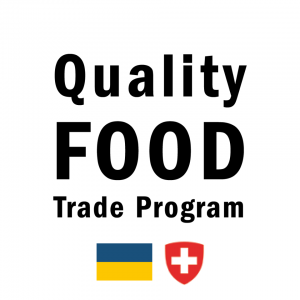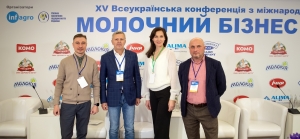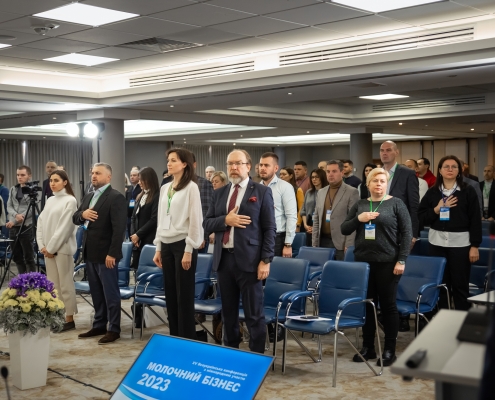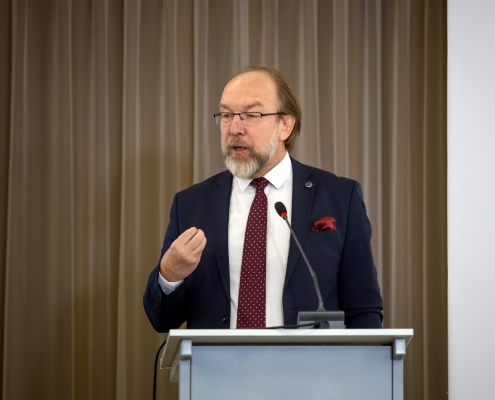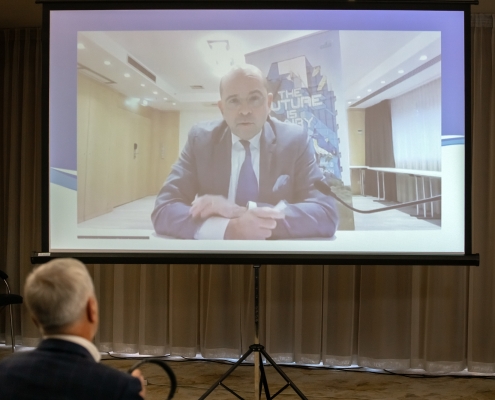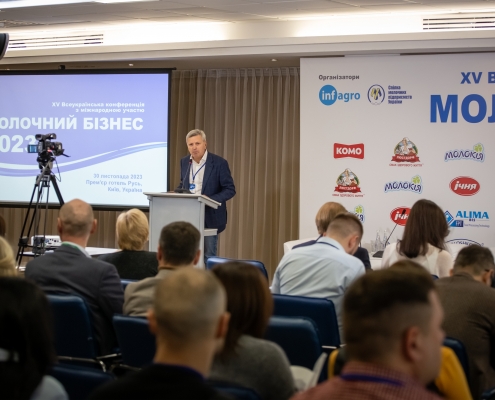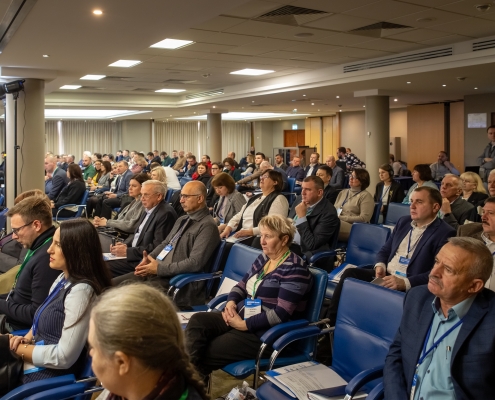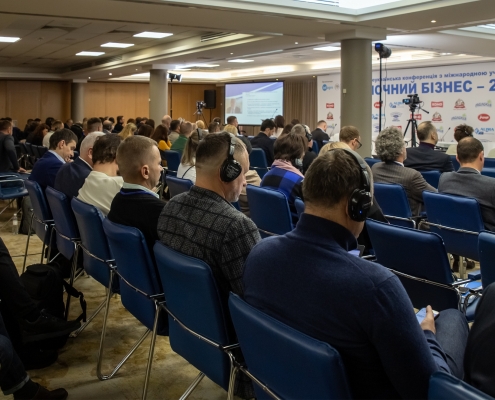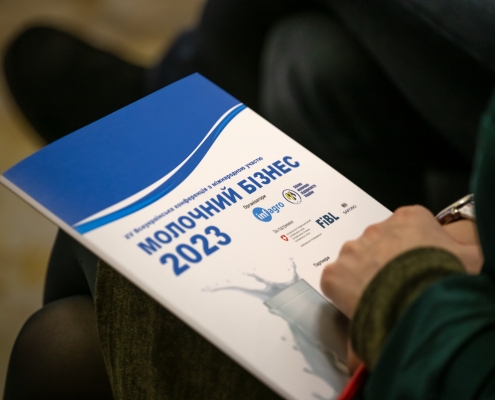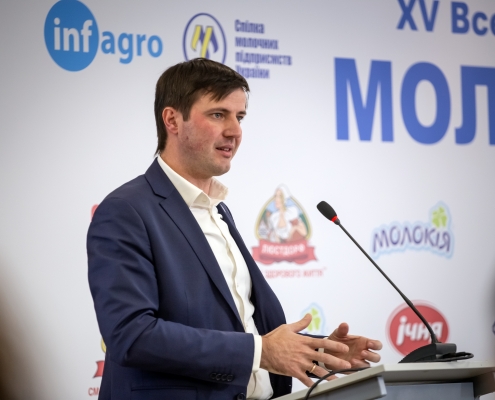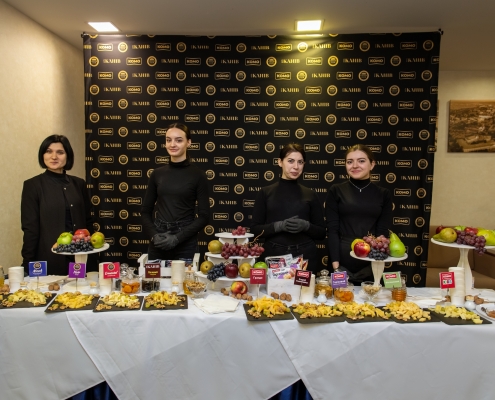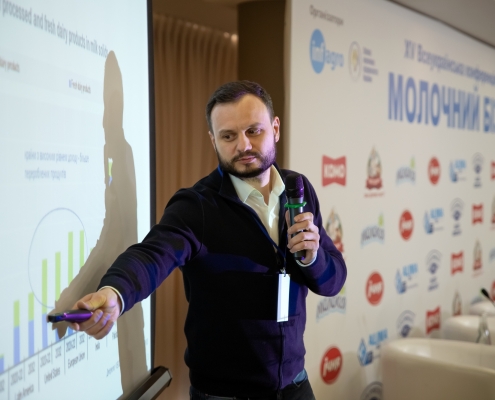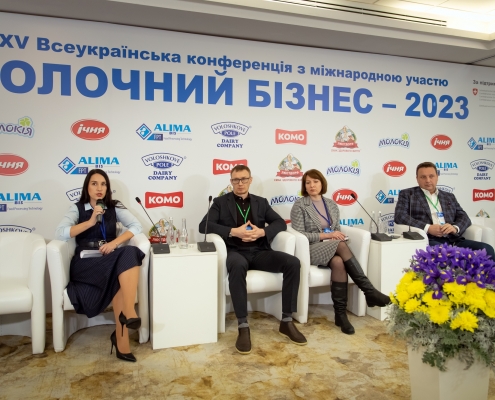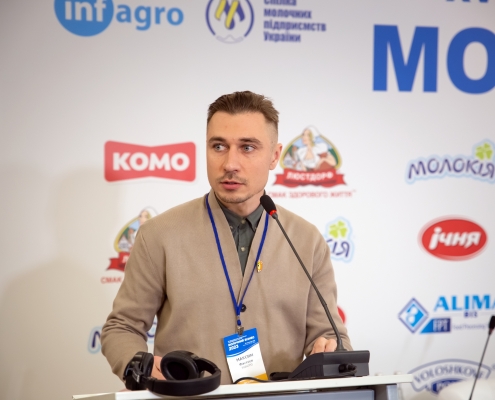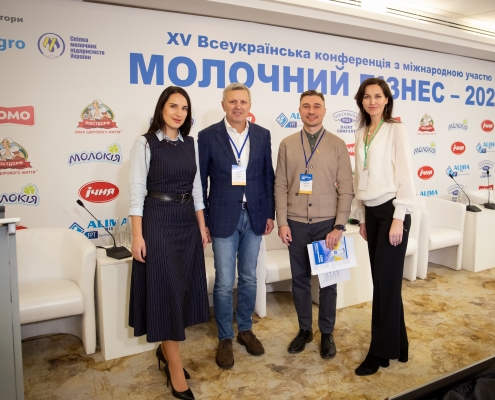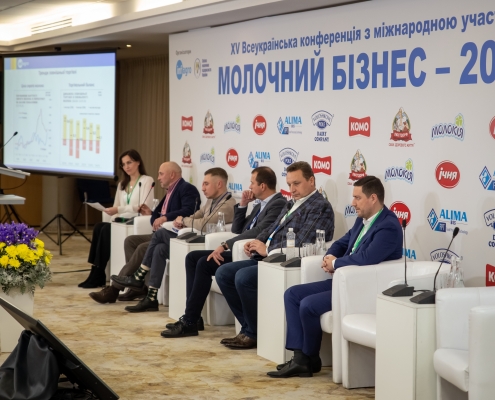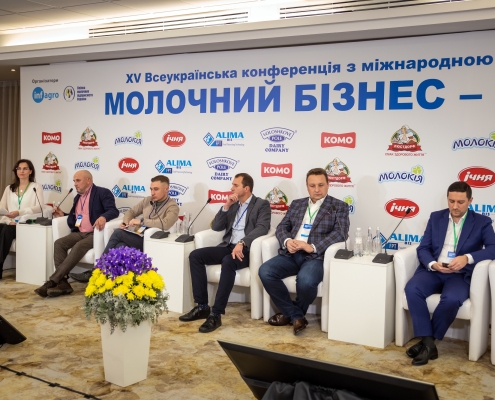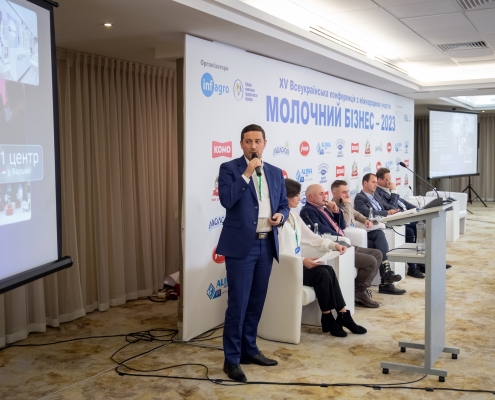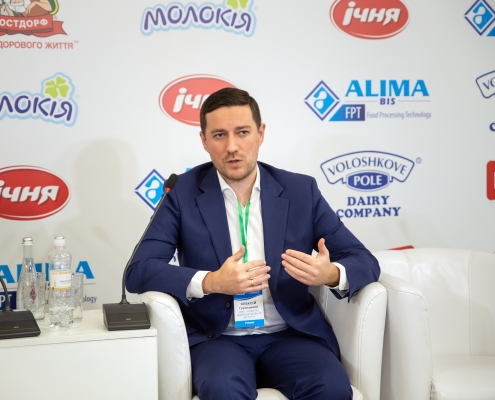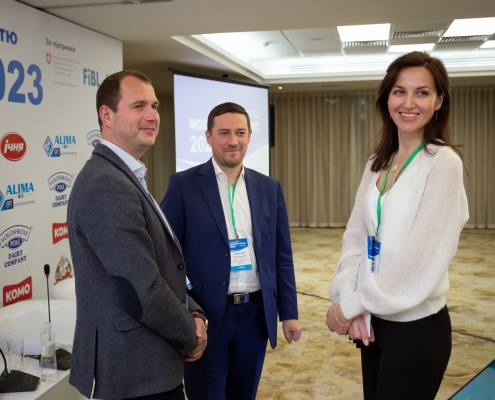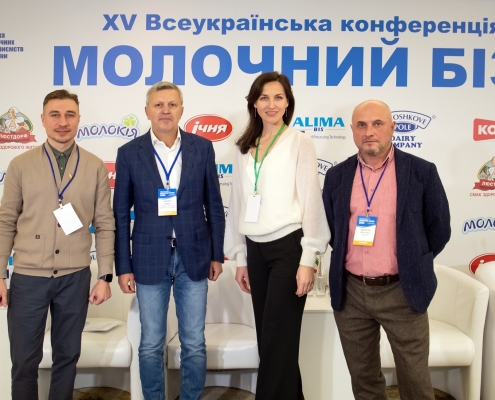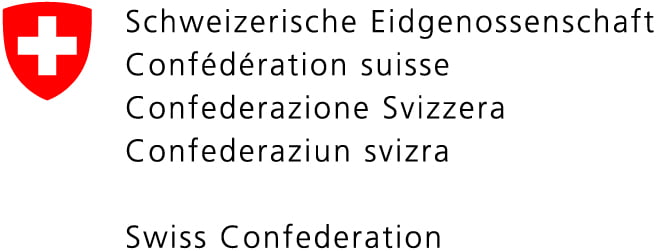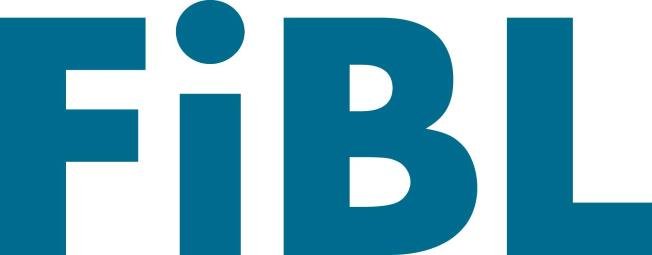For the second time in 15 years, the DAIRY BUSINESS conference was held in wartime, bringing together in Kyiv representatives of the dairy industry and their partners, those who ensure the work of the Ukrainian dairy industry despite all the difficulties of wartime.
Mykola Solskyi, Minister of Agrarian Policy and Food of Ukraine, Nadiya Bigun, Deputy Minister of Economy of Ukraine, Aleksander Anton, Secretary General of the European Dairy Association (EDA), and Gennadiy Chyzhykov, President of the Ukrainian Chamber of Commerce and Industry welcomed the participants. All of them emphasised the importance of the dairy industry for the country’s food security and expressed their readiness to support the Ukrainian dairy business.
The first session was devoted to the challenges related to the war. This was discussed by Vadym Chaharovskyi, Chairman of the Union of Dairy Enterprises of Ukraine (UDEP). 39 processing plants are in the occupied territory, 2 have been destroyed, and the cows livestock is decreasing. At the same time, the country is experiencing a shortage of raw materials and, accordingly, the purchase price of raw milk is rising. The industry is in urgent need for personnel. But there is also a lot of positive facts, and this was emphasised by the head of the UDEP. The domestic market is growing, and export of dairy products is not much worse than last year. Agricultural enterprises have even increased milk production, and more will be processed this year than the last year.
The first session was moderated by Arsen Didur, Executive Director of the UDEP. He emphasised the need for closer cooperation with European colleagues and spoke about the success of the UDEP in establishing the necessary contacts in the EU to represent the interests of domestic dairy industry.
Jerzy Plewa, Team Europe Direct expert, who spoke to the delegates about the development of the Polish dairy industry after the country’s accession to the EU. He also emphasised the importance of participation of the Ukrainian dairy industry representatives in governmental negotiations between the EU and Ukraine, stressing that such negotiations are a long process, and the changes that the industry will inevitably undergo during this process are quite painful, in particular, those that lead to the forced closure of enterprises. He advised his Ukrainian colleagues to start modernising their enterprises and harmonising the relevant industry regulations with European ones, but at the same time warned that not all practices can be adopted in Ukraine, as much has changed since 2004 (the year Poland joined the EU), including much more modest CAP budgets for farmers, processors and exporters.
Vyacheslav Chuk, Commercial Director of Astarta-Kyiv, spoke about the changes that are already underway. Milk production is an important part of the company’s business, which is the largest industrial milk producer in the country. And now, during the war, the agricultural holding is increasing its livestock, investing in milk production by engaging farmers and creating conditions to reduce production costs. The company has built a feed center that serves several dairy farms, buys equipment for local farmers, as according to the company’s calculations, 1 euro invested in the development of a farmer’s economy generates 5 euros for the needs of the local community.
The speeches by Taras Vysotskyi, First Deputy Minister of Agrarian Policy and Food of Ukraine, and Andrii Bohdanets, People’s Deputy of Ukraine, Co-Chair of the Inter-Factional Deputy Group “For the Development of the Dairy Industry of Ukraine”, showed that state institutions are aware of the problems and needs of the dairy industry and are looking for ways to solve them. The opportunities provided by the State Institution “Entrepreneurship and Export Promotion Office” (EEPO) were also discussed during the second session by Oleksii Hrushetskyi, Advisor to the Director of the Office, who presented the EEPO’s achievements for entrepreneurs who are aiming to expand their exports.
The session on dairy trade was moderated by Iryna Vysotska, Dairy Sector Component Coordinator of QFTP, and Maksym Fasteyev, INFAGRO Project Partner.
The session began with a speech by Stephen Spencer, Ever.Ag Insights, CEO of Global Markets, who joined the conference online from Australia. In his presentation, he gave a vivid picture of the state of global dairy trade and predicted further developments. Kyrylo Yezhov, KANTAR Development Director, spoke about the changes in the behaviour of Ukrainian consumers during the war and shared his thoughts on marketing tools that can be used by dairy companies in their work.
Vasyl Vintonyak, Director of INFAGRO, outlined the general picture of Ukrainian dairy exports, demonstrating the changes that have taken place over the past year. Oleksiy Dikhterenko, Export Director of KOMO, Mykhailo Pankiv, International Business Development Director of Molokija, and Valentyn Zaporoshchuk, Chairman of the Supervisory Board of ICMC, shared their experience and opportunities for export expansion with the conference participants. During the discussion, many interesting observations were mentioned, such as the attitude of foreign consumers to Ukrainian dairy products, the role of traders in trade, the importance of companies’ participation in international fairs, and the need for companies to constantly work hard to expand their export geography and develop regions that are promising for Ukrainian goods.
In her speech, Iryna Vysotska elaborated on the key challenges for the dairy sector on the way to EU membership of Ukraine. The presentation is available at the link (in Ukrainian).
Source – INFAGRO.
